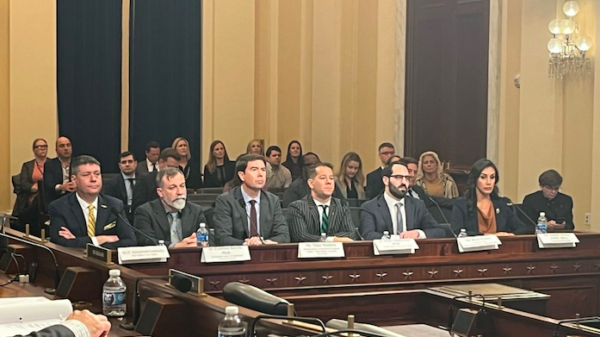After three requests and almost two years on hold, the U.S. Food and Drug Administration’s Office of Neuroscience lifted the ban on a Multidisciplinary Association of Psychedelic Studies study where therapists take MDMA to measure development of self-compassion, professional quality of life and burnout among clinicians.
The FDA had placed the MAPS study, or or so-called MT2 study protocol, on hold based on concerns about scientific merits of the study, risk-to-benefit ratio and the credentials of clinical investigators.
This week, MAPS said the FDA approved removal of the hold on the Phase 1 clinical research.
“Allowing therapist trainees to enroll in MT2 will support the goals of the MDMA Therapy Training Program to provide comprehensive training to future providers,” says Shannon Carlin, director and head of training at MAPS Public Benefit Corporation.
“This work builds capacity to deliver quality, accessible care to patients, pending approval of MDMA-assisted therapy as a legal prescription treatment,” Carlin says.
Developed by MAPS’s wholly-owned subsidiary MAPS PBC, the study is a multi-site research project that aims to assess the safety and psychological effects of MDMA in healthy volunteer therapists, who are undergoing training to treat people suffering from post-traumatic stress disorder with MDMA-assisted therapy.
“Even though we are in the midst of Phase 3 studies to treat PTSD, Phase 1 studies are an important area of scientific research and inquiry to generate exploratory and safety data to support new indications,” MAPS PBC chief scientific officer Berra Yazar-Klosinski said in a statement, adding that her organization appreciates the Office of Neuroscience seeing the scientific merit.
MAPS says that while the studies don’t provide groundbreaking data to support the PTSD treatment indications, “They serve to increase understanding of MDMA’s clinical effects in a therapeutic setting as well as enhance therapist training, and may therefore prove beneficial in the treatment of patients,” reads the statement.
Read more: Canada’s first set of approved health workers begin psilocybin therapy training
Read more: 67% of PTSD sufferers drop diagnosis in first MDMA Phase 3 trial
The organization chose to dispute the ban in an attempt to resolve an ongoing issue with the FDA regarding investigator qualifications across studies, says Allison Coker, regulatory affairs manager at MAPS PBC.
The Office of Neuroscience’s agreement with their assessment establishes a precedent that can serve as guidance for developing requirements for investigators in future studies, she adds.
Without this, the hold would have required the lead facilitator in each two-person team have a medical degree, Ph.D. or equivalent qualification and the physician be on-site, instead of on-call, during the treatment sessions.
MAPS PBC’s legal team led by Josephine Torrente from Hyman, Phelps & McNamara, P.C. for months disputed with the FDA to approve the study before the hold was lifted.
Negotiating with the FDA in an evidence-based manner with existing and new data, analyzed specifically for the organization’s response, is MAPS at its best, according to MAPS executive director Rick Doblin.
“For three decades, we have sought to educate the FDA in our novel approach rather than simply accept FDA requirements that are unjustified by the evidence,” he said in the statement.
“The dedicated work and incisive strategy of our clinical development team continues to improve the regulatory landscape for all future patients of psychedelic-assisted medicines.”
International recognition of psychedelic benefits for patients and practitioners
While safety and efficacy of MDMA-assisted therapy is still under investigation, recent Phase 3 trials have shown that 67 per cent of patients with resistant PTSD dropped the diagnosis after three sessions. Other MDMA studies focusing on eating disorders and social anxiety are in Phase 2.
Similar programs in Canada have gotten federal approval to train medical professionals with first-hand psychedelic experience.
In March, Canadian non-profit TheraPsil started a training program for healthcare workers in psilocybin-assisted therapy to facilitate better guidance and more empathy for patients.
TheraPsil’s cohort of 15 healthcare workers started training in April, and the program has been receiving positive feedback from therapists so far.
Dear @PattyHajdu – without healthcare professionals fully trained in psilocybin therapy, Canadians in medical need will not have access to the care and support required.
Please continue to show compassionate leadership and grant those in our training cohort their exemptions. pic.twitter.com/1nIU8Xyjh1
— TheraPsil (@TheraPsil) May 13, 2021
Follow Natalia Buendia Calvillo on Twitter
natalia@mugglehead.com














